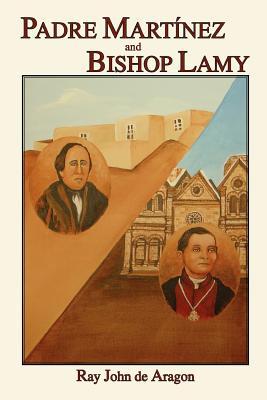Willa Cather, in the historical novel "Death Comes for the Archbishop," depicts Padre Antonio Jose Martinez as an unscrupulous backward rogue priest and Archbishop Jean Baptiste Lamy as a civilizing, heroic and monumental figure. Countering Cather's assessment and portrayal of these two larger-than-life Southwestern folk heroes, Ray John de Aragon attempts to set the historical record straight. Padre Martinez (1793-1867) is viewed as a genius who was ahead of his time. Recognized as a champion of the poor, defender of the Native Americans and proponent of human rights, it was inevitable that he would clash with Lamy. Bishop Lamy (1814-1888), who also had his followers, emerges as someone whose understanding of native New Mexican cultures was lacking, but one whose intentions were to do good as a missionary in a strange and foreign land.

Willa Cather, in the historical novel "Death Comes for the Archbishop," depicts Padre Antonio Jose Martinez as an unscrupulous backward rogue priest and Archbishop Jean Baptiste Lamy as a civilizing, heroic and monumental figure. Countering Cather's assessment and portrayal of these two larger-than-life Southwestern folk heroes, Ray John de Aragon attempts to set the historical record straight. Padre Martinez (1793-1867) is viewed as a genius who was ahead of his time. Recognized as a champion of the poor, defender of the Native Americans and proponent of human rights, it was inevitable that he would clash with Lamy. Bishop Lamy (1814-1888), who also had his followers, emerges as someone whose understanding of native New Mexican cultures was lacking, but one whose intentions were to do good as a missionary in a strange and foreign land.